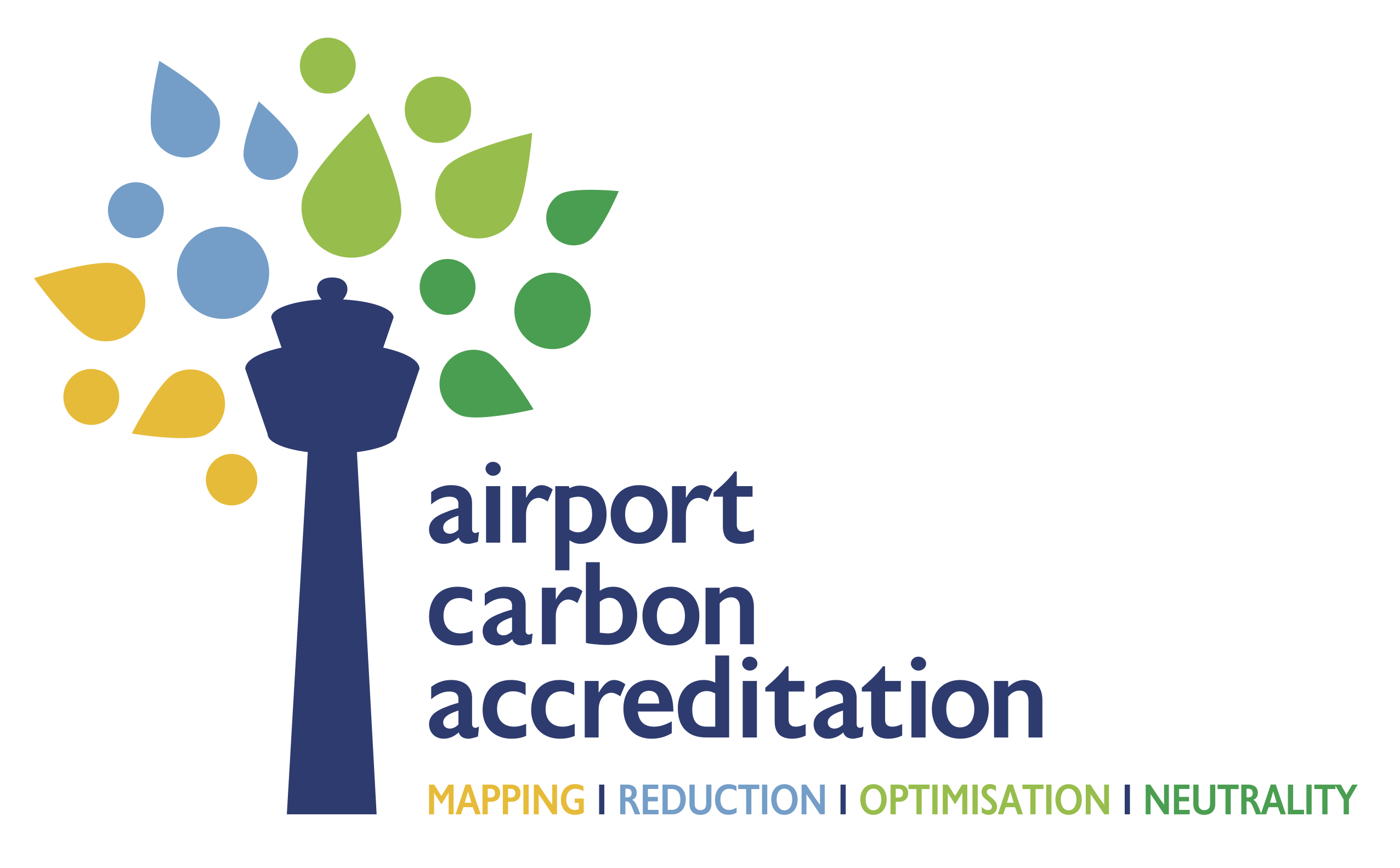Global airport industry climate action surpasses 200 airports milestone
19 October 2017• 201 airports across the world now certified at one of the 4 levels of Airport Carbon Accreditation
• These airports welcomed over 2.8 billion passengers a year – that’s 39.6% of global air passengers
• Latest global CO2 reduction by airport industry announced: -202,184 tonnes of CO2
• 35 airports are carbon neutral
Mauritius - At this year’s ACI World & Africa Annual General Assembly (WAGA) hosted by Airports of Mauritius Co, the global airport industry issued an update on the progress it has been making in addressing its CO2 emissions, through the independent and voluntary global certification programme, Airport Carbon Accreditation.
As is customary at this time of year, Airports Council International also released the annual report for Airport Carbon Accreditation (covering the period May 2016 to May 2017), showing how the global airport industry° is delivering on its commitment to lower its own CO2 emissions, made in 2007*.
Angela Gittens, Director General, ACI World commented “This past year has seen continued engagement from airports - with 36 new applications to Airport Carbon Accreditation and more airports reaching a higher level of certification within the programme. As a result, we are able to announce that we now have 201 airports participating in Airport Carbon Accreditation. These airports welcome over 39.6% of global air passenger traffic. To put that into context, that means more than 2.8 billion passengers now travel through airports certified at one of the 4 levels of the programme.”
Earlier this week, Townsville Airport in Queensland, Australia became the 200th airport to enter the programme, certified at Level 2 Reduction.
She added “From May 2016 to May 2017, accredited airports succeeded in collectively reducing the CO2 emissions under their direct control by 202,184 tonnes of CO2 - that’s equivalent to the CO2 emitted during the lifecycle of over 2.1 million iPhones.”
Niclas Svenningsen, who heads the Climate Neutral Now initiative at the United Nations Framework Convention on Climate Change (UNFCCC) Secretariat in Bonn, Germany commented “People are aware of the public conversation about Climate Change between governments and the work underway to forge and implement policies that support a sustainable future, but effective climate action also relies enormously on an innovative and proactive private sector – and Airport Carbon Accreditation is a really good example of that. By providing a clear, yet ambitious framework that accommodates the multi-speed nature of airports’ efforts across the world, this is actively encouraging and stimulating a collective effort by the Global airport industry – one that is also engaging other aviation stakeholders to get involved as well. Something other industries and sectors would do well to try to foster.”
More African Airports on Board
Participation growth in the African continent has been particularly remarkable – going from 3 airports in the programme a year ago, to now 10 accredited airports. These airports welcome 28% of African air passenger traffic. An additional 6 US airports also became certified for the first time, and US airports were also major contributors to the overall reduction of CO2 emissions achieved last year – with Dallas Fort Worth becoming the first airport in the Americas reaching carbon neutral status. These achievements reflect the continued commitment of US airports to addressing climate change, despite the withdrawal of the US from the Paris Agreement.
A number of airports received their certificates at a dedicated Airport Carbon Accreditation ceremony during this year’s WAGA in Mauritius:
- ACSA (Airports Company of South Africa) received 4 certificates – each at Level 1 Mapping for Cape Town International (Cape Town), King Shaka International (Durban), O.R. Tambo International (Johannesburg) and Port Elizabeth International (Port Elizabeth) airports.
- ONDA (Moroccan Airports Authority) collected two Level 1 Mapping certificates for 2 of tis airports: Casablanca Mohammed V International and Marrakech Menara Airport.
- From Latin America there were also a Level 1 Mapping certificates presented to Guayaquil International Airport and Carrasco International Airport, Montevideo
- the final airport to be certified at Level 1 Mapping was Sir Seewosagur Ramgoolan International Airport in Mauritius – the host of this year’s WAGA.
- Meanwhile, at Level 2 Reduction, there were 2 certifications: Libreville Leon Mba International Airport and Quito International Airport.
- Aeria’s Felix Houphouet Boigny Airport – the airport of Abidjan – also received its Level 3+ Neutrality certificate, distinguishing itself as the very first African airport to achieve carbon neutral status.
With 4 different levels of accreditation covering all stages of carbon management (Mapping, Reduction, Optimisation and Neutrality), Airport Carbon Accreditation is independently administered, institutionally-endorsed¹ and has the support of the United Nations Framework Convention on Climate Change (UNFCCC), United Nation Environment Programme (UNEP), the International Civil Aviation Organisation (ICAO), US Federal Aviation Administration and the European Commission (EC).
*****
For all the latest key figures, including details of the accredited airports in each world region, their actions and the difference the programme is making, check out the interactive maps, case studies & programme results on www.AirportCO2.org. You can also download the Airport Carbon Accreditation Annual Report 2016-2017 here.


